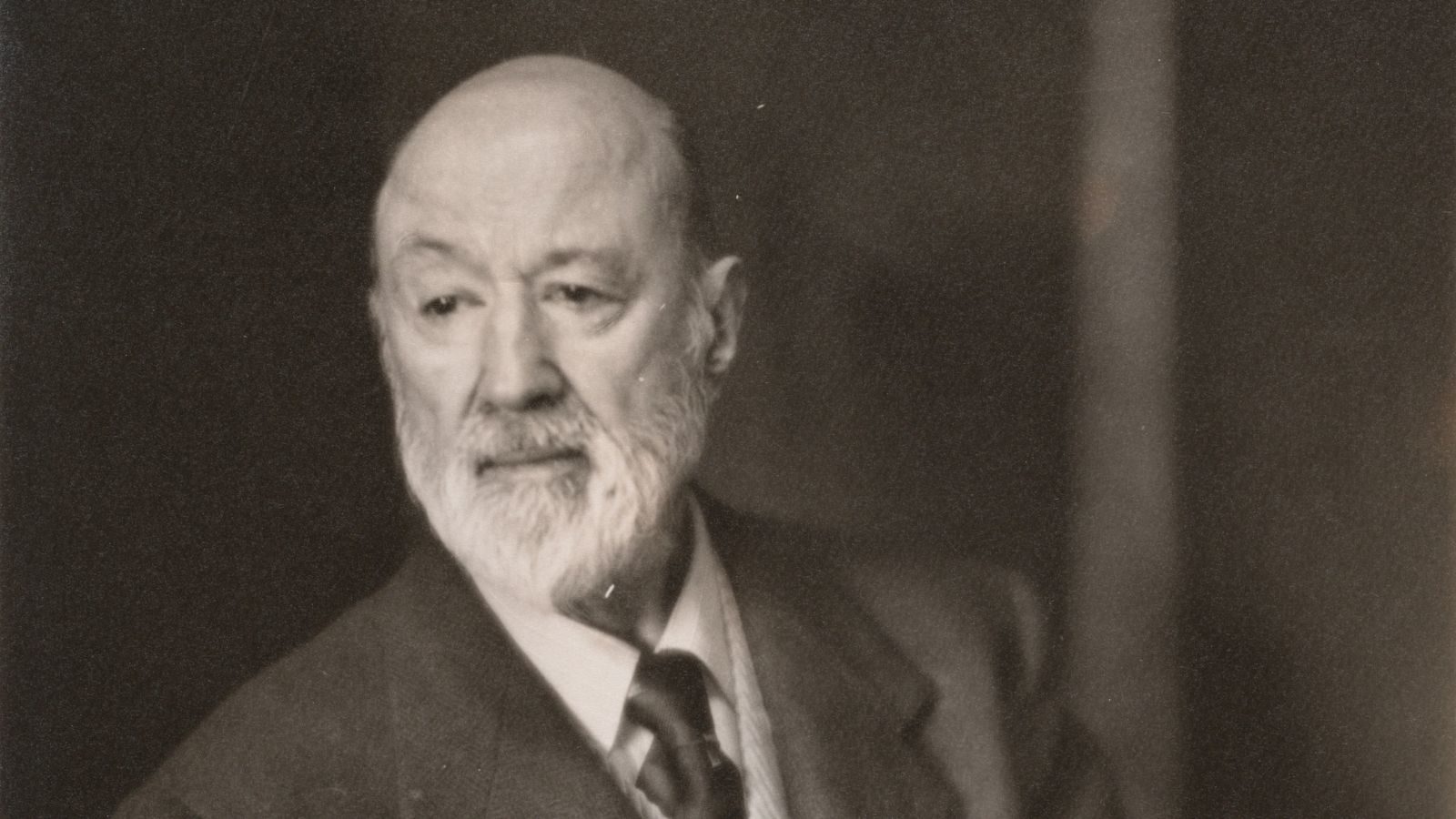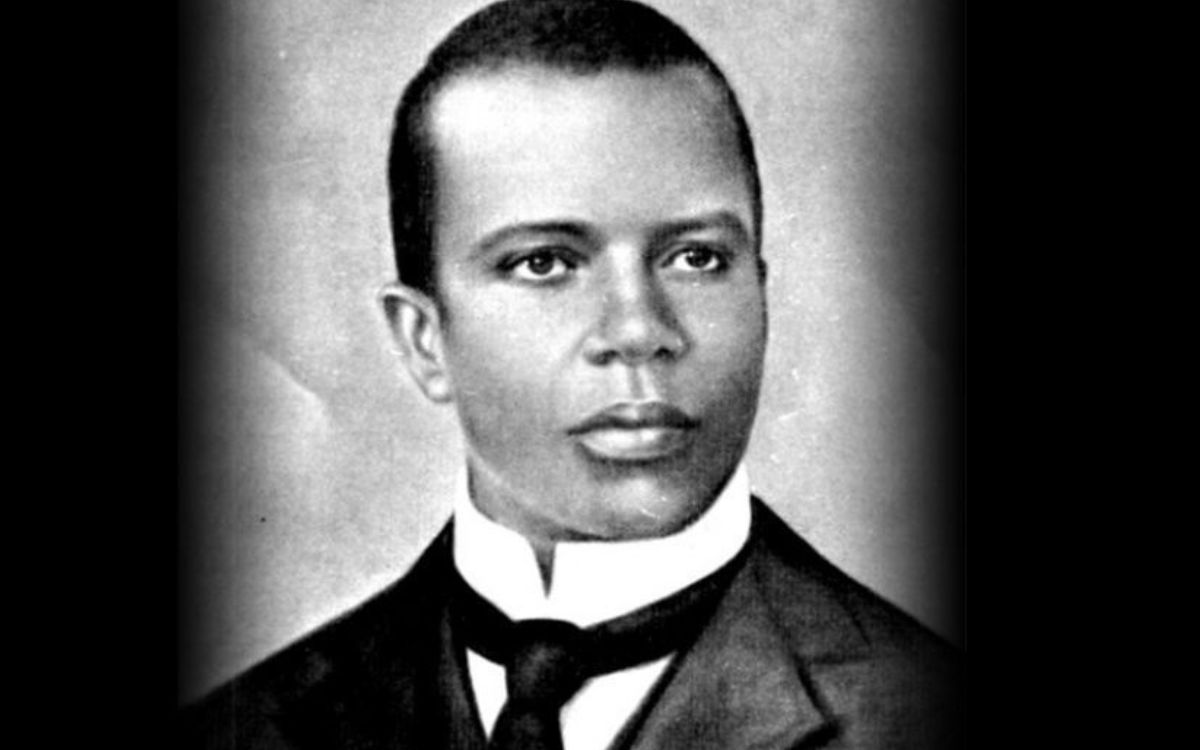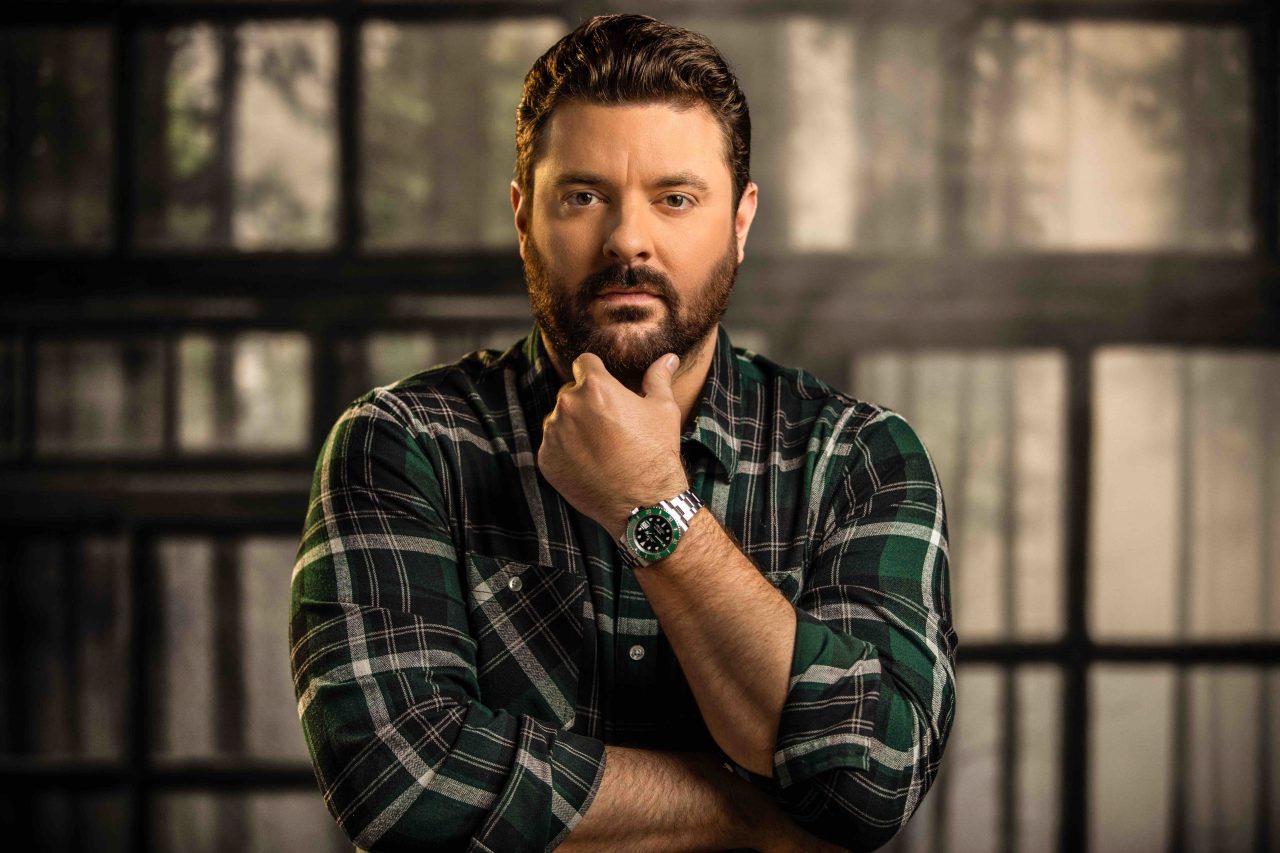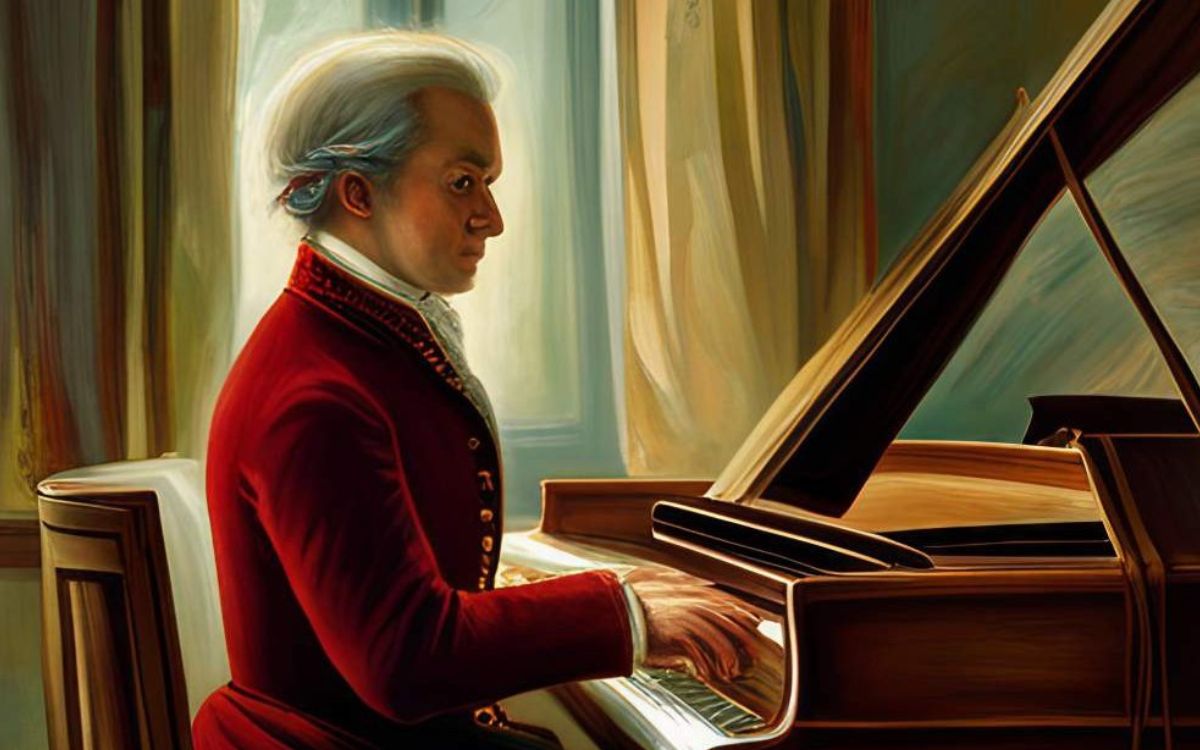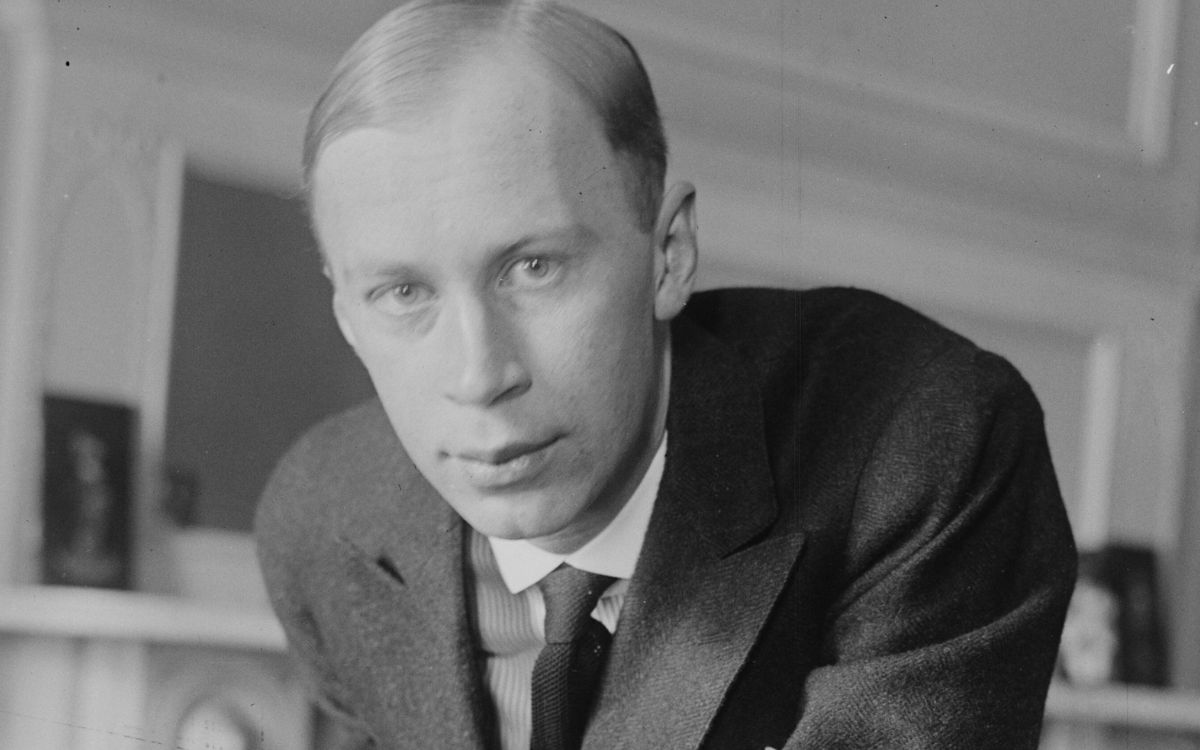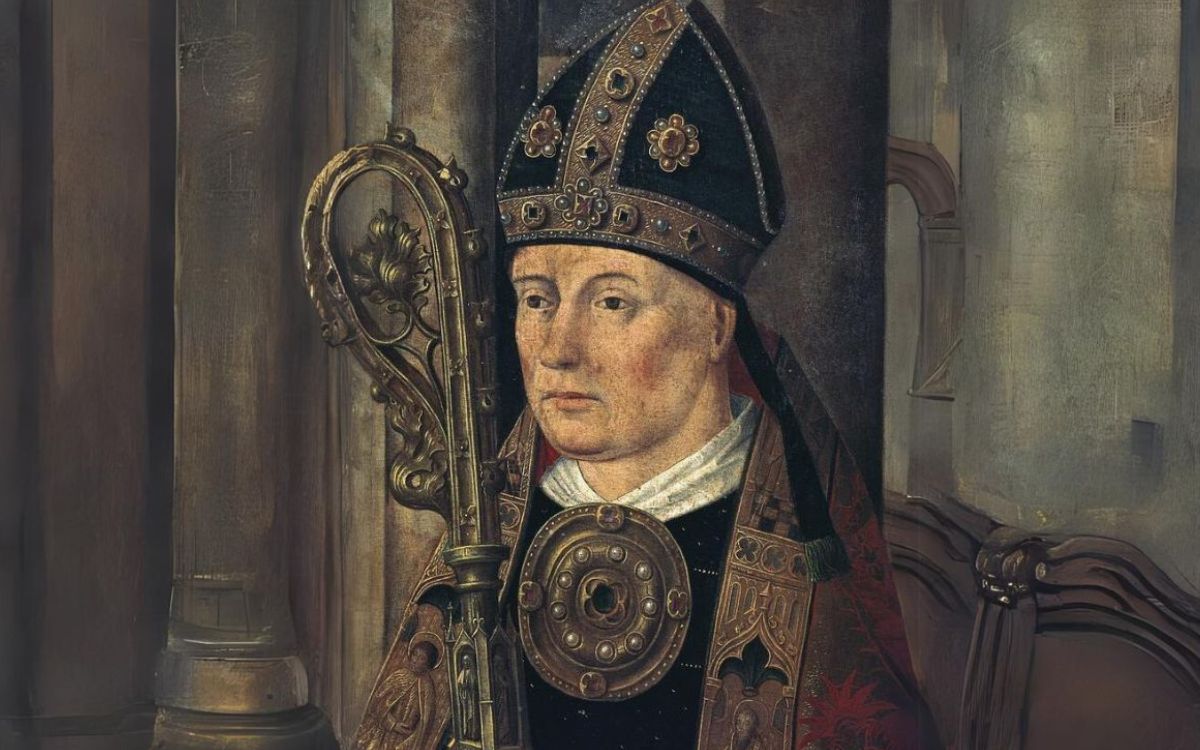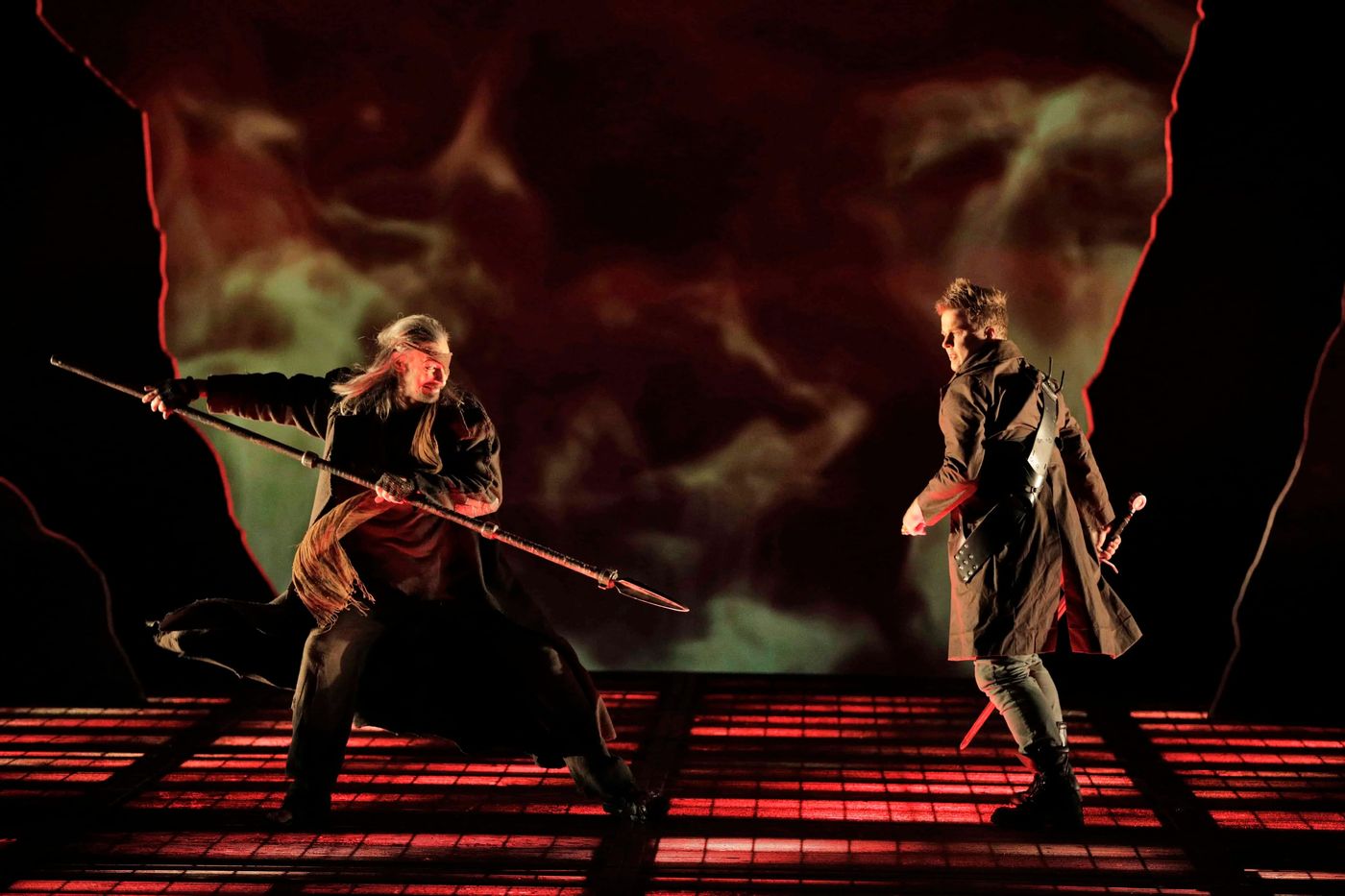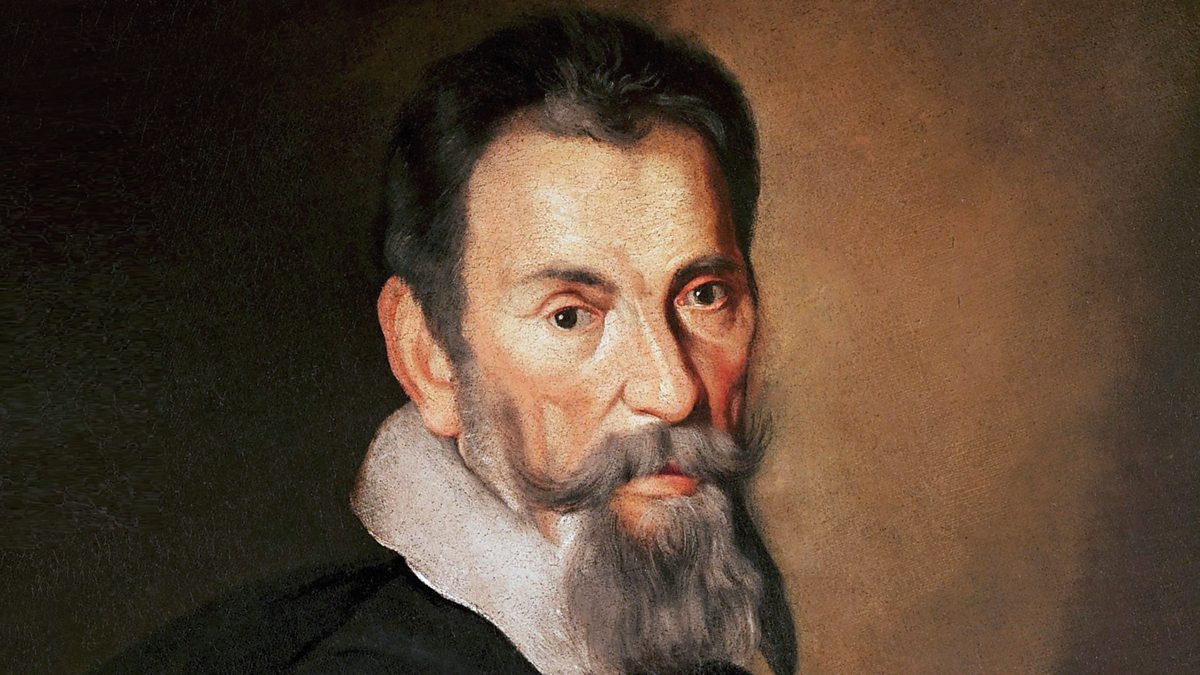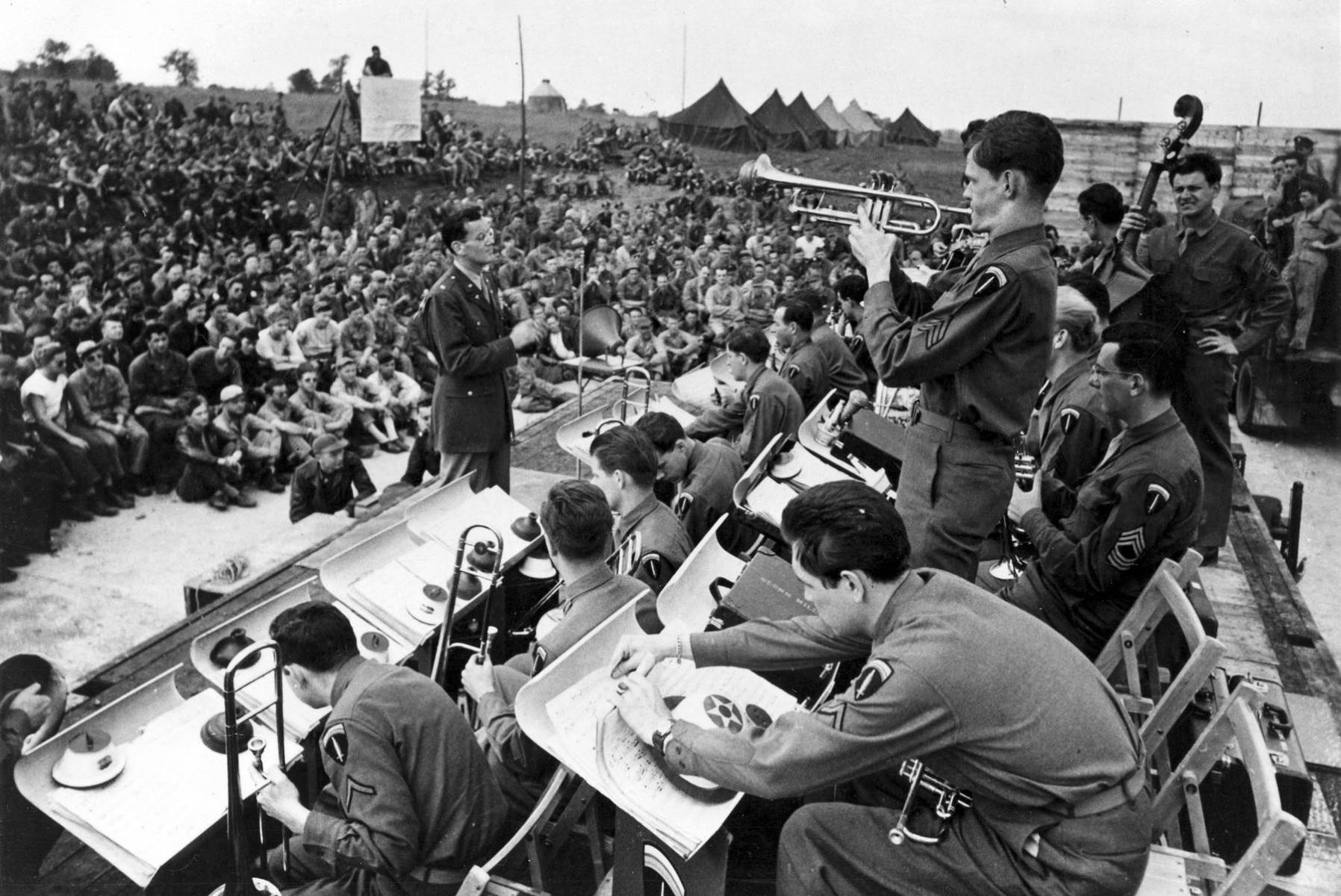Home>Production & Technology>Composer>Which Composer Had An Overwhelming Influence On A Young Richard Wagner?
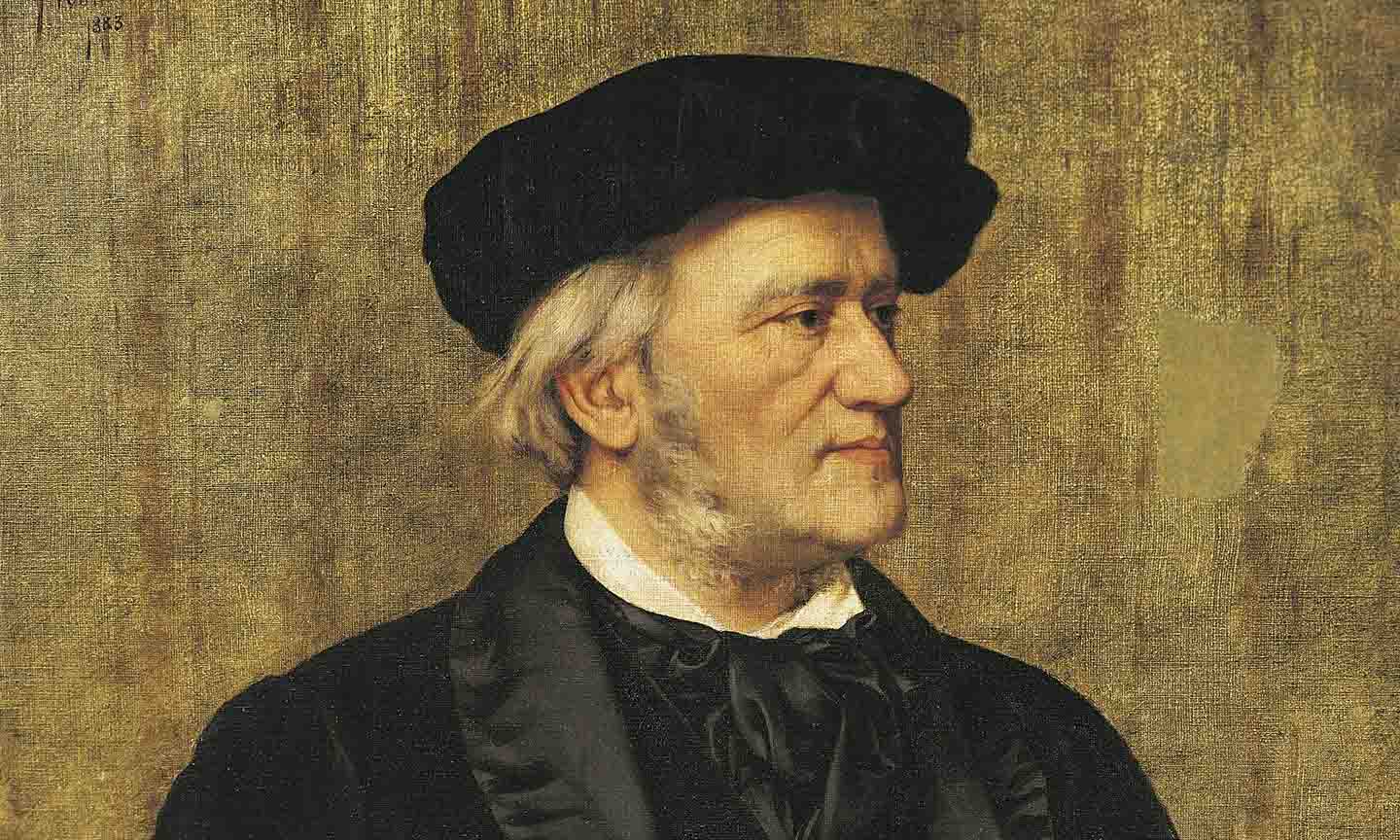

Composer
Which Composer Had An Overwhelming Influence On A Young Richard Wagner?
Modified: January 31, 2024
Discover the composer who had a profound impact on a young Richard Wagner and shaped his musical journey. Immerse yourself in the transformative influence.
(Many of the links in this article redirect to a specific reviewed product. Your purchase of these products through affiliate links helps to generate commission for AudioLover.com, at no extra cost. Learn more)
Table of Contents
- Introduction
- Early Life of Richard Wagner
- Musical Influences on Richard Wagner
- The Impact of Ludwig van Beethoven on Richard Wagner
- Beethoven’s Influence on Wagner’s Musical Style
- Wagner’s Transformation under the Influence of Beethoven
- Wagner’s Emulation of Beethoven’s Compositional Techniques
- Wagner’s Admiration for Beethoven’s Symphonic Works
- Wagner’s Incorporation of Beethoven’s Ideas into his Operas
- Conclusion
Introduction
Richard Wagner, the renowned German composer, is known for his groundbreaking contributions to opera and his immense impact on the world of music. Throughout his career, Wagner drew inspiration from various composers and musical styles, shaping his unique approach to composition.
One composer who had an overwhelming influence on a young Richard Wagner was Ludwig van Beethoven. Beethoven’s music not only captivated Wagner but also played a crucial role in shaping his musical style and philosophical beliefs.
In this article, we will explore the early life of Richard Wagner, delve into the musical influences that surrounded him, and specifically examine the profound impact Beethoven had on his development as a composer. We will analyze how Beethoven’s compositions influenced Wagner’s musical style, the ways in which Wagner emulated Beethoven’s techniques, and how he incorporated Beethoven’s ideas into his own operas.
By understanding the relationship between Richard Wagner and Ludwig van Beethoven, we can gain a deeper insight into Wagner’s artistic evolution and the lasting impact he had on the world of opera.
So, let’s embark on this musical journey and discover the profound influence of Ludwig van Beethoven on the development of one of the most influential composers in history – Richard Wagner.
Early Life of Richard Wagner
Richard Wagner was born on May 22, 1813, in Leipzig, Germany. He grew up in a middle-class family, where he developed a deep appreciation for music from an early age. His father, Carl Friedrich Wagner, was a police clerk, while his mother, Johanna Rosine Wagner, came from a theatrical background.
Wagner’s childhood was marked by frequent moves and financial struggles. Although his family faced hardships, they managed to provide him with a basic musical education. At the age of nine, Wagner attended the Kreuzschule in Dresden, where he received formal training in music theory and composition.
During his formative years, Wagner immersed himself in the works of various composers. He found inspiration in the operas of Christoph Willibald Gluck, Wolfgang Amadeus Mozart, and Carl Maria von Weber. These encounters with music fueled his ambition to become a composer himself.
At the age of 16, Wagner enrolled at the University of Leipzig, where he studied literature and music. It was during this time that he became captivated by the works of Ludwig van Beethoven. Beethoven’s compositions left a lasting impression on Wagner, igniting a passion for music that would shape his future career.
Wagner’s early life was not only defined by his love for music but also by his involvement in various political and social movements. He embraced revolutionary ideals and was actively engaged in the progressive intellectual circles of his time.
As Wagner discovered his own unique musical voice and navigated the challenges of a rapidly changing Europe, he was influenced by the social and political ideologies of the time. These influences would later find expression in his operas, which would transform the landscape of Western classical music.
With a solid foundation in music theory and a burning creative spirit, Richard Wagner embarked on a journey that would forever intertwine his name with the annals of music history. But it was the influence of Ludwig van Beethoven, one of the greatest composers of all time, that would play a pivotal role in shaping Wagner’s artistic development.
Musical Influences on Richard Wagner
Richard Wagner’s musical journey was shaped by a diverse range of influences. From his early exposure to the works of Gluck and Mozart to his deep admiration for the symphonies of Beethoven, Wagner’s musical palette expanded and evolved over time.
One of the significant influences on Wagner was the German composer Carl Maria von Weber. Weber’s operas, such as “Der Freischütz” and “Euryanthe,” showcased a fusion of dramatic storytelling and innovative orchestration, which had a profound impact on Wagner’s understanding of the possibilities within the operatic medium.
Wagner was also greatly influenced by the Italian operatic tradition, particularly the works of Gioachino Rossini and Gaetano Donizetti. He admired the virtuosic vocal performances and melodic richness of their compositions, and although his own style would later diverge from the bel canto tradition, this early exposure to Italian opera left an indelible mark on his approach to vocal writing.
However, it was the music of Ludwig van Beethoven that truly resonated with Wagner and served as a catalyst for his artistic development. The power and emotional depth of Beethoven’s symphonies ignited Wagner’s imagination and led him to explore new possibilities in his own compositions.
Wagner’s musical influences extended beyond the realm of opera. He drew inspiration from the symphonic works of Franz Liszt and the philosophical ideas of Arthur Schopenhauer, who emphasized the importance of music as a means of transcending the limitations of the physical world.
As Wagner matured as a composer, his musical influences became more nuanced and complex. He became increasingly fascinated with the concept of Gesamtkunstwerk, or “total artwork,” which aimed to synthesize all art forms into a unified, immersive experience. This concept, heavily influenced by the theories of German philosopher Friedrich Nietzsche, shaped Wagner’s approach to opera, leading to the development of his monumental works like “Der Ring des Nibelungen.”
Richard Wagner’s musical influences were multifaceted, ranging from the classical tradition to the emerging Romantic movement. These diverse sources of inspiration enriched his artistic vocabulary and shaped the unique and innovative style for which he is celebrated to this day.
The Impact of Ludwig van Beethoven on Richard Wagner
The influence of Ludwig van Beethoven on Richard Wagner cannot be overstated. Beethoven’s revolutionary compositions had a profound impact on Wagner’s musical development and shaped the trajectory of his career. Beethoven’s works not only captivated Wagner with their emotional depth and expressive power but also inspired him to push the boundaries of classical music.
When Wagner first encountered Beethoven’s music, he was struck by the composer’s ability to convey profound emotions through his works. Beethoven’s symphonies, in particular, resonated with Wagner’s artistic sensibilities, and he considered them to be grand expressions of human experience. The emotional intensity and dramatic scope of Beethoven’s symphonic music left an indelible mark on Wagner and fueled his desire to create similarly powerful and evocative compositions.
Beethoven’s innovative approach to musical structure also greatly influenced Wagner. Beethoven’s tendency to break traditional forms and explore new harmonic territories inspired Wagner to push the boundaries of his own compositional techniques. He sought to incorporate Beethoven’s boldness and sense of experimentation into his own works.
Furthermore, Beethoven’s music served as a source of inspiration for Wagner’s concept of Gesamtkunstwerk, or “total artwork.” Beethoven’s symphonies, with their seamless integration of different musical elements, showcased the potential of combining music, drama, and other art forms into a cohesive whole. This concept heavily influenced Wagner’s vision for the opera, leading him to strive for a synthesis of all arts in his groundbreaking works.
Beethoven’s impact on Wagner extended beyond mere compositional techniques. He admired Beethoven’s artistic integrity and his willingness to express his own personal struggles and ideals through his music. This admiration fueled Wagner’s own commitment to authenticity and the pursuit of artistic truth. He sought to create not just entertaining works, but impactful and transformative experiences for his audience.
In addition to his musical influence, Beethoven served as a symbol of artistic heroism and rebellion for Wagner. Beethoven’s resilience in the face of personal challenges, including his gradual loss of hearing, inspired Wagner to overcome his own difficulties and pursue his artistic vision with unwavering determination.
Overall, the impact of Ludwig van Beethoven on Richard Wagner cannot be overstated. Beethoven’s powerful and innovative compositions, his courage to explore new artistic frontiers, and his lasting influence on Wagner’s concept of Gesamtkunstwerk all played an instrumental role in shaping Wagner into one of the most significant composers in musical history.
Beethoven’s Influence on Wagner’s Musical Style
Ludwig van Beethoven’s influence on Richard Wagner’s musical style was profound and far-reaching. Beethoven’s groundbreaking compositions challenged traditional musical conventions and paved the way for Wagner’s own innovations in the realm of classical music.
One of the key elements of Beethoven’s music that deeply influenced Wagner was his use of dramatic and emotional expression. Beethoven’s works were characterized by their intense and passionate musical language, which resonated with Wagner’s desire to elicit strong emotional responses from his audience. This emphasis on emotion became a fundamental aspect of Wagner’s musical style.
Beethoven’s innovative use of harmony also left an indelible mark on Wagner’s musical compositions. Beethoven’s exploration of unconventional harmonic progressions, chromaticism, and modulation techniques inspired Wagner to experiment with new tonal colors and push the boundaries of traditional tonal structures. Wagner’s use of chromaticism and expanded harmonic vocabulary can be traced back to Beethoven’s influence.
Furthermore, Beethoven’s approach to musical structure significantly impacted Wagner’s compositional style. Beethoven’s symphonies, with their large-scale forms and thematic transformations, demonstrated to Wagner the potential for creating dramatic narratives within instrumental music. Wagner adopted this narrative approach in his operas, constructing intricate musical structures that reflected the storylines and emotions portrayed onstage.
Beethoven’s use of leitmotifs, recurring musical themes associated with specific characters or ideas, also had a profound impact on Wagner. Beethoven’s skillful integration of leitmotifs in his works, particularly in his Symphony No. 9, inspired Wagner to explore the use of leitmotifs as a means of character development and storytelling in his own operas. Wagner expanded on this idea, creating an elaborate system of leitmotifs that became a hallmark of his music dramas.
Beethoven’s influence can also be seen in Wagner’s treatment of rhythm and orchestration. Beethoven’s rhythmic drive and masterful orchestrations inspired Wagner to experiment with different rhythmic patterns and instrumental combinations to create dynamic and powerful musical textures. Wagner’s innovative use of the orchestra, particularly in his later operas, can be seen as a continuation of Beethoven’s exploration of the expressive capabilities of the ensemble.
In summary, Beethoven’s influence on Wagner’s musical style was profound. From his emphasis on emotion and dramatic expression, to his use of harmony, structure, leitmotifs, and orchestration, Beethoven’s innovations served as a catalyst for Wagner’s own artistic development. The impact of Beethoven’s musical language can be heard throughout Wagner’s compositions, establishing him as a composer who built upon and expanded the foundations laid by his predecessor.
Wagner’s Transformation under the Influence of Beethoven
The influence of Ludwig van Beethoven on Richard Wagner went beyond mere musical inspiration. Beethoven’s impact sparked a transformation in Wagner’s artistic approach and philosophy, shaping him into the visionary composer he is known as today.
One of the transformative aspects of Beethoven’s influence on Wagner was his approach to the role of music in society. Beethoven viewed music as a powerful tool for social change and believed in its capacity to convey profound human emotions and ideals. This notion resonated deeply with Wagner and ignited his own desire to use music as a means of societal and artistic transformation.
Under Beethoven’s influence, Wagner began to view music as a medium through which he could express his own artistic vision and philosophical ideas. Inspired by Beethoven’s commitment to authenticity and personal expression, Wagner sought to create works that reflected his own beliefs and convictions, free from the constraints of convention.
Beethoven’s pursuit of artistic truth and his unwillingness to compromise his creative vision also had a profound impact on Wagner. Wagner admired Beethoven’s unwavering dedication to his artistic ideals, even in the face of adversity. This admiration fueled Wagner’s own determination to stay true to his artistic vision and to push the boundaries of his art.
Furthermore, Beethoven’s exploration of musical form and structure inspired Wagner to challenge the traditional boundaries of classical music. Wagner’s desire to break free from the constraints of operatic conventions led him to experiment with new forms and to develop his own unique style of composition. In this sense, Beethoven served as a catalyst for Wagner’s evolution from traditional opera to the innovative concept of music drama.
Beethoven’s influence also extended to Wagner’s philosophical beliefs. Wagner was drawn to Beethoven’s merging of music and ideology, and he embraced the notion that music could convey profound truths and universal messages. This alignment of music and philosophy became a central aspect of Wagner’s own artistic vision, as he sought to use his music dramas to explore deep existential questions and to provoke intellectual and emotional responses in his audience.
Overall, the influence of Beethoven on Wagner’s transformation was profound. Beethoven’s commitment to artistic integrity, his exploration of new musical possibilities, and his belief in the power of music to effect change shaped Wagner’s artistic philosophy and drove him to create works that expanded the boundaries of classical music. Beethoven’s influence propelled Wagner towards a radical artistic vision, setting the stage for the remarkable contributions he would make to the world of opera and music as a whole.
Wagner’s Emulation of Beethoven’s Compositional Techniques
Richard Wagner’s admiration for Ludwig van Beethoven went beyond mere inspiration. Wagner actively sought to emulate and incorporate Beethoven’s compositional techniques into his own works, resulting in a musical style that paid homage to the great composer while adding a distinct Wagnerian touch.
One of the key ways in which Wagner emulated Beethoven was through his use of dramatic tension and developmental techniques. Beethoven’s compositions were characterized by their intricate and progressive development of musical themes. Wagner applied this approach in his own works, often utilizing motivic and thematic transformations that evolved throughout the course of a piece or an entire opera. By employing Beethoven’s techniques, Wagner was able to build complex musical structures that intensified the emotional impact of his music.
Like Beethoven, Wagner was captivated by the expressive power of dynamic contrasts. Beethoven’s music often featured drastic shifts in volume and intensity, creating moments of dramatic impact. Wagner embraced this approach and employed similar dynamic contrasts in his music, using orchestral swells and sudden silences to heighten the dramatic tension and create moments of emotional impact in his operas.
Additionally, Wagner was influenced by Beethoven’s mastery of orchestration. Beethoven was known for his innovative and skillful use of different instrumental combinations to create unique sonic textures. Wagner took cues from Beethoven’s orchestration techniques, experimenting with various instrumental colors and utilizing the full range of the orchestra to enhance the emotional and dramatic impact of his music.
Furthermore, Beethoven’s use of leitmotifs, recurring musical themes associated with specific characters, ideas, or emotions, profoundly influenced Wagner. Beethoven’s incorporation of leitmotifs in his symphonic works inspired Wagner to develop his own elaborate system of leitmotifs in his music dramas. Wagner expanded on Beethoven’s concept, using leitmotifs as a means of character development, storytelling, and thematic connection throughout his operas, most notably in his monumental work, “Der Ring des Nibelungen.”
Another compositional technique that Wagner borrowed from Beethoven was the concept of the “Tristan chord.” This dissonant and unresolved chord, famously used in Beethoven’s Ninth Symphony, had a significant impact on Wagner. He incorporated a similar unresolved chord, now known as the “Tristan chord,” in his opera “Tristan und Isolde,” creating a sense of longing, tension, and unresolved desire.
Wagner’s emulation of Beethoven’s compositional techniques allowed him to imbue his music with a sense of grandeur, emotional depth, and dramatic intensity. His innovative use of thematic development, dynamic contrasts, orchestration, leitmotifs, and dissonance furthered the legacy of Beethoven’s musical language while charting new territories in opera and composition.
By acknowledging Beethoven’s influence and incorporating his compositional techniques, Wagner not only paid tribute to the great composer but also carved a unique path for himself in the realm of music, leaving an enduring mark on the history of classical music.
Wagner’s Admiration for Beethoven’s Symphonic Works
Richard Wagner held a deep admiration for Ludwig van Beethoven’s symphonic works, considering them to be masterpieces of musical expression. Beethoven’s symphonies, in particular, captivated Wagner and served as a source of inspiration and awe throughout his career.
Wagner saw in Beethoven’s symphonies a grandeur and emotional depth that resonated with his own artistic sensibilities. Beethoven’s symphonic music embodied a sense of powerful storytelling and dramatic intensity, qualities that Wagner aspired to achieve in his own operas.
One of the symphonies that had a particularly profound impact on Wagner was Beethoven’s Ninth Symphony, also known as the “Choral Symphony.” Wagner marveled at the symphony’s unique structure and its visionary integration of voices, which showcased Beethoven’s ability to convey profound human emotions through music. The famous “Ode to Joy” finale, with its jubilant chorus and its message of universal brotherhood, inspired Wagner’s own belief in the transformative power of music.
Wagner also greatly admired Beethoven’s Fifth Symphony, with its iconic opening motif and its dramatic journey from darkness to triumph. The symphony’s boldness and intensity resonated with Wagner, fueling his own aspirations to create works that pushed the boundaries of traditional composition and evoked powerful emotional responses.
Furthermore, Wagner found inspiration in Beethoven’s Sixth Symphony, the “Pastoral Symphony,” which showcased Beethoven’s ability to evoke the beauty and serenity of nature through music. The symphony’s lyrical melodies and vivid depiction of natural landscapes influenced Wagner’s own approach to creating musical landscapes, particularly in his opera “Das Rheingold,” where the flowing Rhine River is brought to life through rich, evocative orchestration.
Wagner’s admiration for Beethoven’s symphonic works went beyond their musical brilliance; he recognized in them a deep philosophical and spiritual resonance. The symphonies served as a reminder of the inherent power of music to touch the soul and transcend the limitations of the human experience.
Beethoven’s symphonies not only inspired Wagner’s creative endeavors but also reinforced his belief in the transformative potential of music as a means of connecting with and awakening the human spirit. They served as a guiding light, motivating Wagner to push the boundaries of classical music and to create works that aimed to communicate universal truths and provoke profound emotional and intellectual responses.
Wagner’s deep admiration for Beethoven’s symphonic works endured throughout his life, continuing to shape his artistic vision and influence his own approach to composition. Through his own endeavors, Wagner sought to honor Beethoven’s legacy and contribute to the rich tapestry of Western classical music.
Wagner’s Incorporation of Beethoven’s Ideas into his Operas
Richard Wagner’s deep admiration for Ludwig van Beethoven extended beyond appreciation for his symphonic works. Wagner actively incorporated Beethoven’s ideas and musical techniques into his own operas, creating a unique fusion of dramatic storytelling and innovative composition.
One of the most significant ways in which Wagner incorporated Beethoven’s ideas was through the use of leitmotifs. Beethoven’s use of recurring musical themes inspired Wagner to develop an elaborate system of leitmotifs in his operas. These leitmotifs served as musical identifiers for characters, objects, emotions, and ideas, enabling Wagner to weave a rich tapestry of interconnected musical themes throughout his works. This technique added depth and coherence to his operas, allowing for a multi-layered narrative that transcended the boundaries of traditional operatic storytelling.
Furthermore, Beethoven’s exploration of structure and form influenced Wagner’s approach to opera composition. Beethoven’s innovative approach to symphonic structures, such as thematic development, motivic transformation, and expanded forms, inspired Wagner to experiment with new ways of structuring his own operas. He sought to create musical architectures that mirrored the dramatic arc and emotional journey of the characters, emphasizing the integration of music and drama in a manner that echoed Beethoven’s groundbreaking approach to composition.
Beethoven’s use of tension and contrast also played a significant role in Wagner’s operas. Wagner recognized the power of Beethoven’s dynamic contrasts and applied them to his own works, using stark shifts in dynamics and intensity to heighten dramatic impact and evoke emotional responses from the audience. This approach is particularly evident in his dramatic music dramas, such as “Tristan und Isolde” and “Götterdämmerung,” where Wagner was able to create intense emotional experiences through the skillful use of dramatic tension and release.
Additionally, Wagner drew inspiration from Beethoven’s use of orchestration. Beethoven’s innovative orchestral writing and exploration of instrumental colors influenced Wagner’s approach to the orchestra in his operas. Wagner sought to paint vivid musical landscapes, using the orchestra to convey the emotional and dramatic nuances of the storytelling. He employed a wide range of instruments and utilized them in unique combinations to achieve the desired sonic effects, taking cues from Beethoven’s mastery of orchestral textures.
Moreover, Wagner’s belief in the transformative power of music, influenced by Beethoven’s philosophical outlook, shaped the thematic content and message of his operas. Like Beethoven, Wagner aimed to go beyond entertainment, using his music dramas as vehicles for exploring profound existential questions and conveying universal truths. Beethoven’s emphasis on the expression of humanity’s struggles, ideals, and triumphs resonated with Wagner, fueling his own aspirations to create works that had a profound impact on both the individual and society.
Through the incorporation of Beethoven’s ideas and techniques, Wagner brought innovation and a new level of artistic depth to the world of opera. His fusion of music and drama, his use of leitmotifs, his exploration of structure and form, his dynamic contrasts, and his orchestration techniques all find their roots in the rich musical language developed by Ludwig van Beethoven. Wagner’s incorporation of these ideas allowed him to create operatic masterpieces that continue to captivate and inspire audiences to this day.
Conclusion
The influence of Ludwig van Beethoven on Richard Wagner cannot be overstated. Beethoven’s music had a profound impact on Wagner’s artistic development and shaped the trajectory of his career. Wagner’s deep admiration for Beethoven’s symphonic works led to a transformation in his own musical style and philosophy.
From an early age, Wagner was captivated by Beethoven’s emotional depth, innovative harmonies, and daring compositional techniques. Beethoven’s symphonies, in particular, ignited Wagner’s imagination and drove him to explore new possibilities in his own compositions.
Under Beethoven’s influence, Wagner’s musical style evolved, leading him to push the boundaries of traditional composition. He embraced Beethoven’s approach to dynamic contrasts, developmental techniques, and orchestration, incorporating these elements into his own works to create intense and emotionally charged musical landscapes.
Beethoven’s influence extended beyond musical techniques; it also shaped Wagner’s artistic philosophy. Beethoven’s commitment to artistic integrity, his resilience in the face of adversity, and his belief in the power of music as a means of social change inspired Wagner’s own pursuit of authenticity and his desire to create transformative experiences for his audience.
Wagner actively sought to incorporate Beethoven’s ideas into his operas. He adopted Beethoven’s use of leitmotifs, developing an intricate system of recurring musical themes that enriched the dramatic narrative of his works. He also drew inspiration from Beethoven’s structural innovations, exploring new ways of organizing his operas to align with the emotional and dramatic arcs of the stories.
Furthermore, Wagner’s deep admiration for Beethoven’s symphonic works fueled his own aspirations to create music that went beyond simple entertainment. Inspired by Beethoven’s ability to convey profound human emotions and ideals through music, Wagner aimed to create works that provoked intellectual and emotional responses, challenging and inspiring both the individual and society.
In conclusion, Ludwig van Beethoven’s influence on Richard Wagner was transformative. Beethoven’s music served as a catalyst for Wagner’s artistic development, contributing to the creation of a unique and innovative musical style that left an indelible mark on the world of opera and composition. Through his admiration and emulation of Beethoven, Wagner elevated the art form and carved out his own place in the annals of classical music history.

